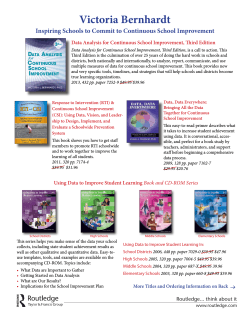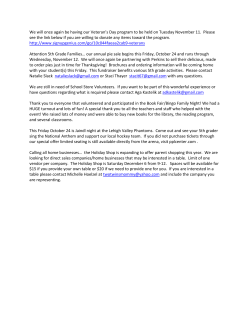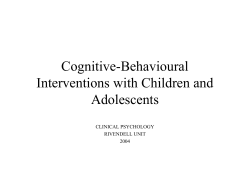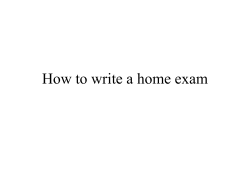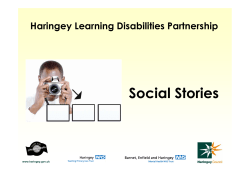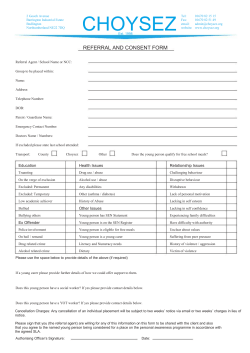
3.3 BEHAVIOUR FOR LEARNING A POSITIVE APPROACH
UNIT 3.3 BEHAVIOUR FOR LEARNING A POSITIVE APPROACH TO CLASSROOM MANAGEMENT Philip Garner From: Learning to Teach in the Secondary School 5th edition, Routledge © 2009 OBJECTIVES At the end of this unit you should be able to: • recognise the policy context for promoting pupil learning in classrooms • interrogate a definition of the term ‘unacceptable behaviour’ and understand the significance of its underlying causes • recognise the importance of a behaviour for learning approach and its core principles • develop positive approaches to unacceptable behaviour which are based on relationships with pupils. From: Learning to Teach in the Secondary School 5th edition, Routledge © 2009 WHAT IS UNACCEPTABLE BEHAVIOUR? Factors which may cause unacceptable behaviours • Individual factors • Cultural factors • Curriculum relevance factors (linked to both individual and cultural) • School ethos and relationships factors • External barriers to participation and learning factors From: Learning to Teach in the Secondary School 5th edition, Routledge © 2009 KEY PRINCIPLES OF BEHAVIOUR FOR LEARNING • Leadership in the classroom • Building positive relationships in classrooms • Structuring the lesson, for positive behaviour and attendance • Rights, responsibilities, routines and rules • Choices • Consequences From: Learning to Teach in the Secondary School 5th edition, Routledge © 2009 FURTHER INFORMATION To explore this material further, read: Garner, P. (2009) ‘Behaviour for learning: a positive approach to classroom management’, in S. Capel, M. Leask and T. Turner (eds) Learning to Teach in the Secondary School: A Companion to School Experience, 5th end, London: Routledge. From: Learning to Teach in the Secondary School 5th edition, Routledge © 2009 FURTHER READING Berryman, M., Glynn, T. and Wearmouth, J. (2006) Perspectives on Student Behaviour in Schools: Exploring Theory and Developing Practice. London: Routledge. Clough, P., Garner, P., Pardeck, T. and Yuen, F. (eds) (2004) The Handbook of Emotional and Behavioural Difficulties, London: Sage. Weare, K. (2004) Developing the Emotionally Literate School, London: Paul Chapman Publishing. From: Learning to Teach in the Secondary School 5th edition, Routledge © 2009
© Copyright 2025

